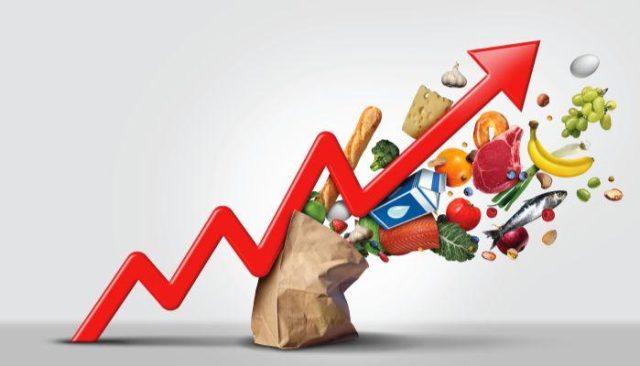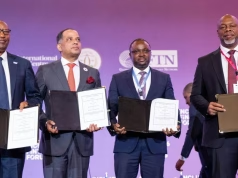In a sign of continued economic stabilization, Nigeria’s inflation rate is projected to decline further in August, reaching 21.45 per cent year-on-year, according to Coronation Asset Management’s latest inflation outlook Nigeria. With the National Bureau of Statistics set to release official data today, analysts say the fifth consecutive monthly drop reflects growing momentum from foreign exchange stability, improved food supply, and easing core price pressures across the economy.
July’s inflation figure came in at 21.88 per cent year-on-year, down from 22.22 per cent in June and sharply lower than the 33.40 per cent recorded in July 2024—a reduction of 11.52 percentage points over the past year. While inflation remains high by historical standards, the sustained downward trend has renewed cautious optimism among investors and policymakers about the trajectory of price stability.
Food inflation, which accounts for nearly half of the consumer basket, eased to 22.74 per cent year-on-year in July, compared to 39.53 per cent a year earlier. Month-on-month food price increases slowed to 3.12 per cent from 3.25 per cent in June, driven by declining prices of key staples such as vegetable oil, white beans, local rice, maize, and wheat flour. Early harvesting cycles in the southern and middle-belt regions have begun to improve market supply, helping to temper sharp price spikes typically seen during lean seasons.
Core inflation, which excludes volatile food and energy items, also showed meaningful improvement, falling to 21.33 per cent year-on-year in July from 27.47 per cent in the same month last year. On a month-on-month basis, it dropped to 0.97 per cent from 2.46 per cent in June, indicating that non-food price pressures are gradually subsiding across services, manufactured goods, and household expenses.
Coronation’s projection for August hinges on four interrelated factors supporting disinflation. First, the early harvest of crops such as maize, groundnuts, pumpkins, and vegetables is increasing food availability and reducing upward pressure on prices. Second, imported food costs are moderating due to improved foreign exchange conditions. The naira closed at N1,531.57 to the dollar in August, a marginal appreciation of 0.44 per cent, supported by reduced volatility and stronger confidence in currency management.
Third, energy prices have declined slightly, lowering production and transportation costs, though logistical inefficiencies continue to limit full cost pass-through. Fourth, foreign exchange liquidity has strengthened, with Nigeria’s external reserves rising by $1.91 billion to $41.27 billion. This, coupled with steady foreign portfolio inflows and calmer global financial conditions, has enabled the Central Bank of Nigeria to maintain orderly markets and sustain near-term currency stability.
Despite these gains, risks loom on the horizon. A dispute between Dangote Refinery and the Nigeria Union of Petroleum and Natural Gas Workers over the unionization of truck drivers could disrupt fuel distribution and trigger temporary price hikes. Additionally, seasonal flooding expected in several agricultural zones may damage farmland and hinder logistics, potentially reversing recent food price relief and slowing the pace of disinflation.
Analysts warn that these factors could cap the decline in inflation, keeping it anchored around 22 per cent year-on-year in the coming months unless mitigated by proactive policy interventions. Meanwhile, AIICO Capital noted in its July Inflation Watch that if the current disinflation trend holds, the Central Bank’s Monetary Policy Committee may consider a rate cut during its September meeting—marking a potential shift from tightening to growth-supportive monetary policy.
For now, the convergence of harvest gains, currency resilience, and cooling demand pressures suggests Nigeria may be entering a more stable phase after years of double-digit inflation. While structural challenges remain, the improving inflation outlook Nigeria offers a critical window to reinforce macroeconomic discipline and lay the foundation for sustainable growth.
Follow us on Instagram.
https://www.instagram.com/businessnewsng?igsh=ZXpweTdjOGF1ZXdu

























